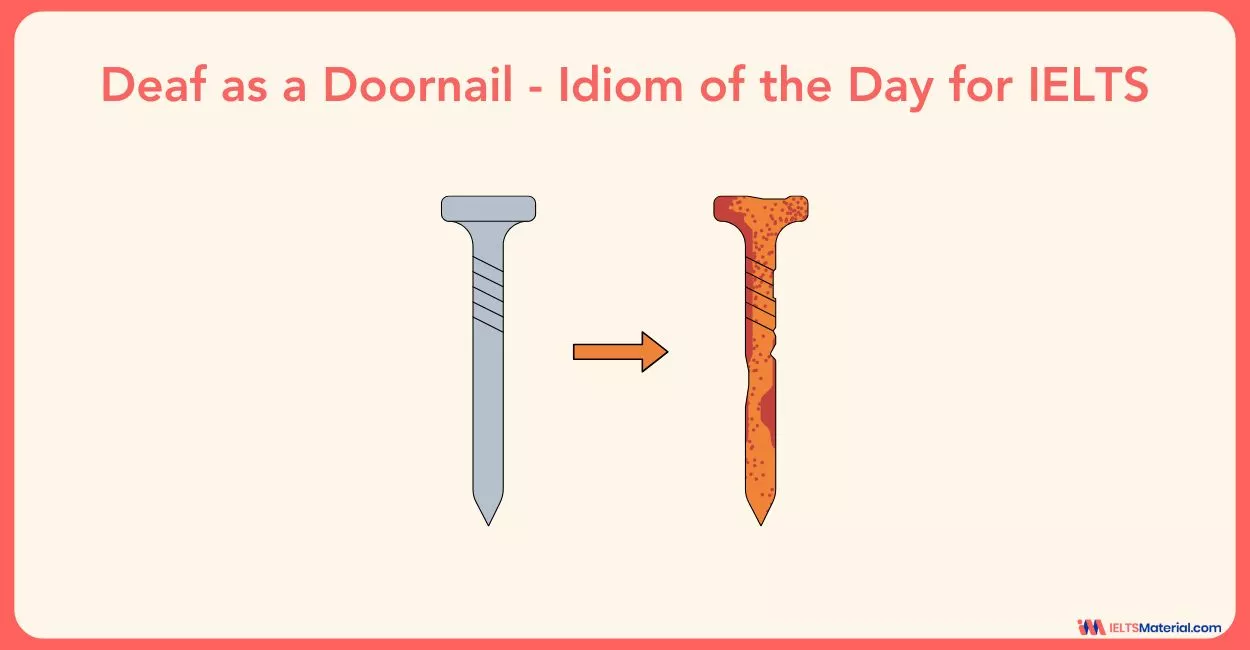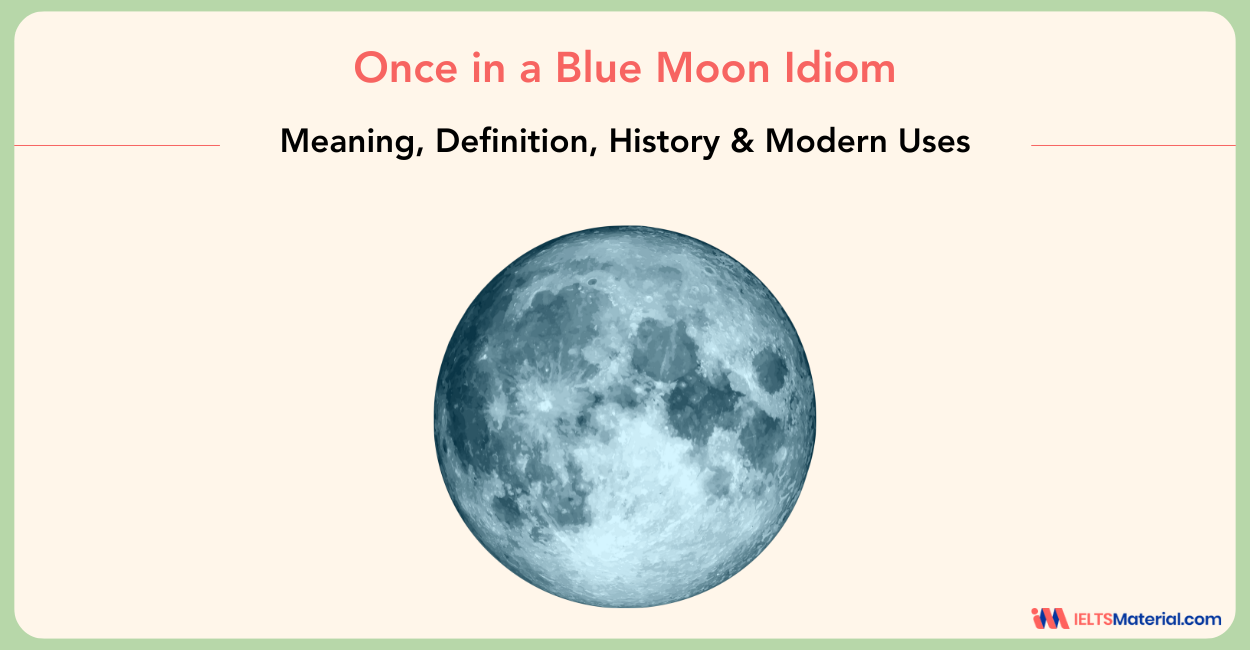Out of Sorts - Idiom Of The Day For IELTS
5 min read
Updated On
-
Copy link
This IELTS idiom 'Out of Sorts' refers to a work especially hard and long on something, often applied to academic study. Find out its meaning, origin, and much more with exercises to help you use it accurately in your final test!
Table of Contents
- Meaning of the ‘Out of Sorts’ IELTS Idiom
- Where Did the Idiom ‘Out of Sorts’ Come From?
- Synonyms of the ‘Out of Sorts’ Idiom
- Antonyms of the ‘Out of Sorts’ Idiom
- Common Mistakes to Avoid While Using the ‘Out of Sorts’ Idiom
- A Sample Scenario to Use the Idiom ‘Out of Sorts’
- Examples to Understand the Usage of the ‘Out of Sorts’ Idiom in Sentences
- Using “Out of Sorts” in IELTS Writing Task 2
- Practice Exercise
- Why This Idiom Is Useful in IELTS

Limited-Time Offer : Access a FREE 10-Day IELTS Study Plan!
This IELTS idiom “Out of Sorts” is perfect for responding to questions about a not so serious physical condition. The idiom directly means to talk about a mentally or physically off situation in an everyday situation.
In this blog of ours, you will perfectly learn how to use “Out of Sorts” accurately in your answers, with sample sentences, meanings, and context-based practice exercises to boost your IELTS exam’s lexical resource score.
Meaning of the ‘Out of Sorts’ IELTS Idiom
The idiom “out of sorts” means to be feeling slightly unwell, upset, uncomfortable, or not in one’s usual routine mood. It does not usually refer to a serious illness but rather to be being off balance either physically or emotionally.
In the IELTS Writing or Speaking, the idiom can be used when talking about the health, emotions, feelings, daily routines, or even personal experiences.
For example:
“I was a bit out of sorts on the day of my presentation because I did not sleep well the night before.”
The idiom adds depth to your language since it expresses more than just being “unwell,” this shows mild discomfort or even dissatisfaction.
Where Did the Idiom ‘Out of Sorts’ Come From?
- This phrase dates back to the 17th century. Initially, “sorts” referred to the types or categories, and that of being “out of sorts” meant being out of the alignment or not in any right order.
- Over the time, this expression came to describing a person who is not in a normal state that is physically, emotionally, or mentally.
- It has since then become a common idiom in everyday routine English, mainly in the British usage, to describe feeling unwell or off without being actually sick.
Connect with our IELTS Trainers to crack your IELTS exam in no time! FREE Demo
Synonyms of the ‘Out of Sorts’ Idiom
- Unwell
- Feeling off
- Under the weather
- In lower spirits
- Irritable
Antonyms of the ‘Out of Sorts’ Idiom
- In proper health
- Cheerful
- Feeling absolutely fine
- In higher spirits
- At one’s best
Common Mistakes to Avoid While Using the ‘Out of Sorts’ Idiom
- Using it to describe serious illness
The idiom refers to mild discomfort and not major health problems.
- Taking it in a literal sense
This does not mean being physically out of the categories or “sorts.”
- Mixing it with some other idioms incorrectly
Do not confuse it with “out of place” or “out of order.”
Using the idiom in overly formal essays. This is more suitable for IELTS informal/semi-formal Writing and the IELTS Speaking than for highly academic writing.
A Sample Scenario to Use the Idiom ‘Out of Sorts’
In the IELTS Speaking Part 2, if you are asked to describe a time when you did not feel well, you can say:
“I remember one afternoon when I had to attend a crucia llecture at my college, but I was feeling a bit out of sorts since I hadn’t eaten my breakfast. I wasn’t able to concentrate properly, and my whole energy was really low throughout that class.”
This instance shows how this idiom naturally describes a mild discomfort and fits the common IELTS Speaking topics like health, study, and also lifestyle.
Examples to Understand the Usage of the ‘Out of Sorts’ Idiom in Sentences
- She has been out of sorts since she stayed up late last night.
- He felt out of sorts after his long flight and needed some amount of rest.
- He seemed out of sorts during that meeting and didn’t contribute very much.
- That child was out of sorts because she missed her afternoon nap.
- Being out of sorts can usually affect productivity and mood at work.
- I am usually out of sorts when the weather become scorching.
- After a long exhausted day, I feel out of sorts and the only thing I would like to do is sleeping.
- Jane looks like out of sorts because she has to stay awake to finish her assignment.
- I am usually out of sorts when the weather become scorching.
- After a long exhausted day, I feel out of sorts and the only thing I would like to do is sleeping.
- Jane looks like out of sorts because she has to stay awake to finish her assignment.
Using “Out of Sorts” in IELTS Writing Task 2
While the idiom is more usually used in the IELTS Speaking, it can also appear in the semi-formal IELTS Writing Task 2 contexts. For instance, in an essay on a situation based on stress and health, you can write:
“Due to the increasing work pressure, many of the employees often feel out of sorts, which reduces their usual productivity and then affects their overall well-being.”
It is a natural way to properly integrate the idiom into a formal writing without sounding too casual.
Practice Exercise
1. The sentence given below contains an idiom. From the given alternatives, choose the one that best expresses the meaning of this idiom.
She was out of sorts because of the IELTS exam result.
A. She was happy.
B She was sad.
C. She was energetic.
D. She was excited.
2. Choose the suitable idiom to complete the sentence below.
After his failure to reach an agreement, John was ……………..
A. Out of sorts.
B. Jump for joy.
C. Eat the humble pie.
D. Cut corners.
Why This Idiom Is Useful in IELTS
This idiom “out of sorts” is very practical because it also applies to everyday situations involving health, emotions, and mood. These all are of which are common IELTS topics.
This helps candidates move beyond a basic set of vocabulary like “tired,” “sick,” or “sad” and expresses ideas more fluently.
In the IELTS Speaking Part 3, for example, when you are asked about how stress affects people, you can say:
“Stress can make individuals feel out of sorts, even if they are not seriously ill. This affects their mood, energy levels, and sometimes their social interactions even.”
This particular answer shows both the idiomatic range and analytical ability of your speech.
Also check:
- Cash-flow Problem - Idiom of the Day for IELTS
- Once in a Blue Moon Idiom: Meaning, Definition & Synonyms
- A Leopard Cannot Change His Spots – Idiom of the Day for IELTS
- Play It By Ear Idiom: Meaning, Origin, Usage & Exercises
- The most Common Idioms to Boost Your IELTS Score – Topic : Help and encouragement
Explore IELTS Resources

Start Preparing for IELTS: Get Your 10-Day Study Plan Today!
Recent Articles

Kasturika Samanta

Prity Mallick

Nehasri Ravishenbagam





Post your Comments